Cyprian Nyakundi has once again exposed deep corruption in Kenya’s corporate sector, this time within Airtel Kenya. Whistleblowers have come forward with shocking details about a scheme known as the “ROC Project,” which unfairly benefits select franchise partners while sidelining others.
This revelation highlights a corrupt system where only close associates, family members, and business allies of Airtel Kenya’s top executives, including Zonal Sales Managers (ZSMs) and Zonal Business Managers (ZBMs), receive free SIM kits.
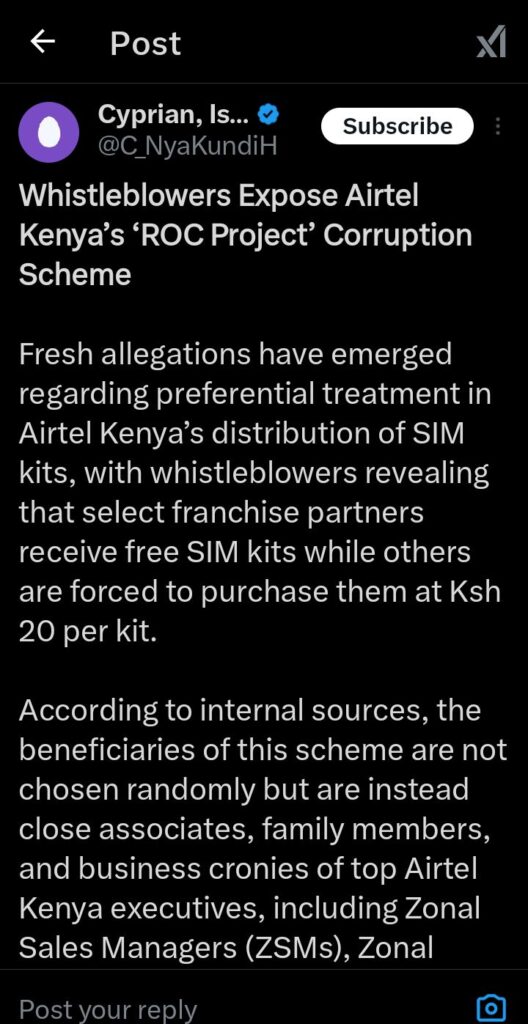
Meanwhile, other franchise partners are forced to purchase the same kits at Ksh 20 per unit, creating an uneven business environment. The whistleblowers have described the privileged partners as mere fronts for Airtel’s senior management, who are the real beneficiaries of this arrangement.
This scheme has left long-serving franchise partners struggling to keep up, as they must invest their own money while the chosen few receive free stock.
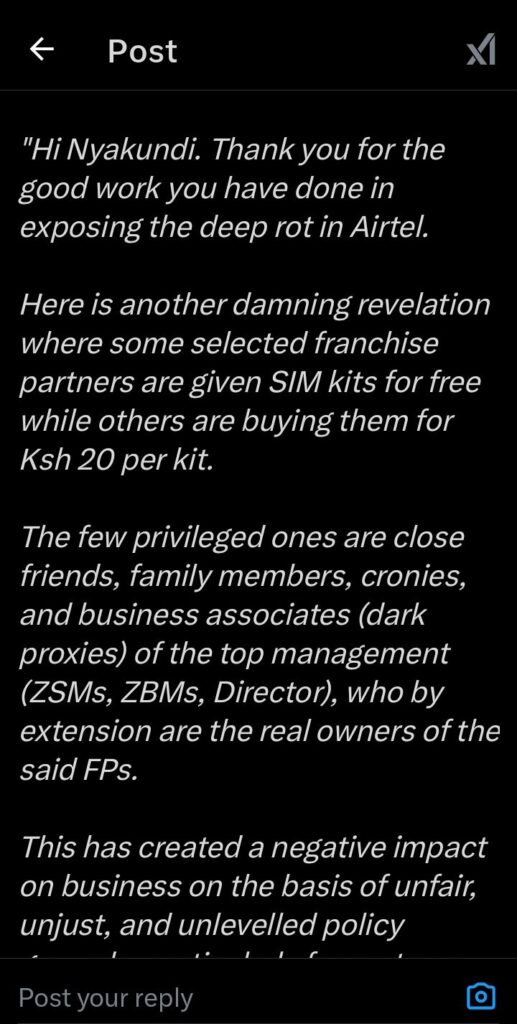
One of the whistleblowers described the situation as a clear case of nepotism and favoritism, completely disregarding ethical business practices.
Beyond this latest scandal, Airtel Kenya has faced numerous allegations of unethical practices. Sales Executives (SEs) working for the company have long been subjected to extreme pressure to meet unrealistic sales targets, often forcing them into fraudulent activities just to keep their jobs.
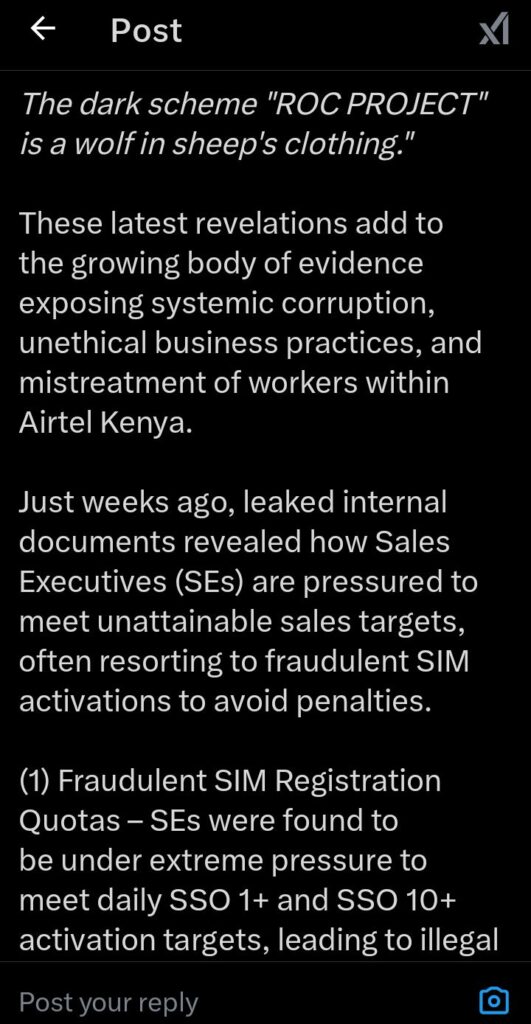
One of the biggest issues is the fraudulent SIM registration quotas, where SEs must meet strict daily activation targets. Failing to do so results in penalties, pushing employees to use customer details without consent to register new lines.
The company’s internal policies demand that SEs achieve 200% of their sales targets within the first ten days of the month, a requirement that is nearly impossible to meet honestly.
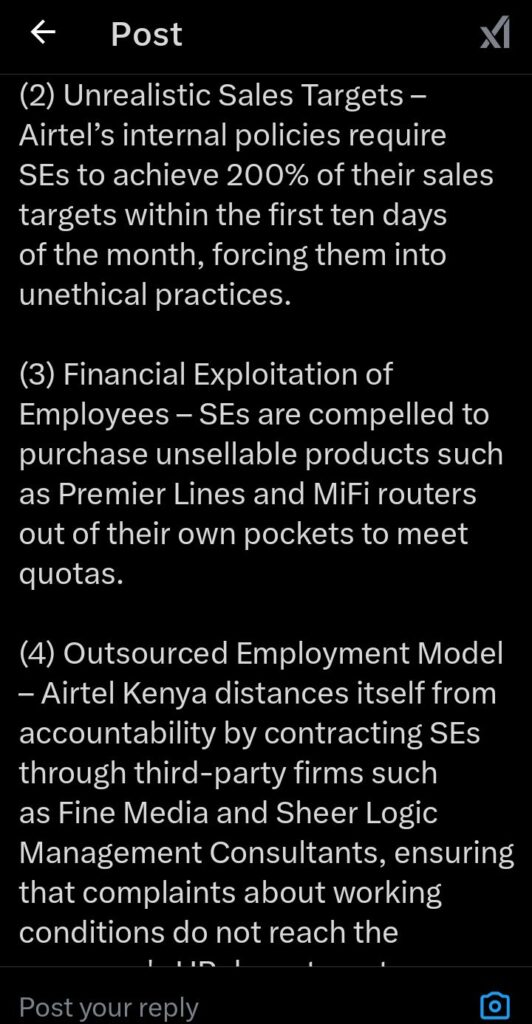
To avoid penalties, SEs are often forced to buy unsellable products, including Premier Lines and MiFi routers, using their own money. This financial burden has left many employees in a desperate situation, with some even taking loans just to meet their targets.
Airtel Kenya has also been accused of using an outsourced employment model to avoid responsibility for poor working conditions. SEs are contracted through third-party firms such as Fine Media and Sheer Logic Management Consultants, creating a loophole that shields Airtel from direct accountability.
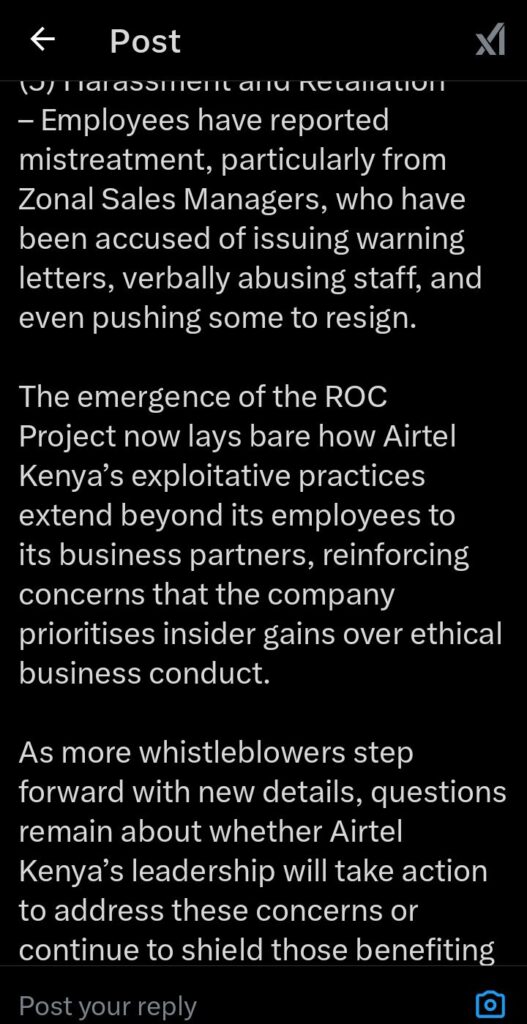
When employees raise complaints about mistreatment, they are ignored because they technically do not work directly for Airtel.
This system allows the company to exploit its workers without facing legal consequences. Harassment and retaliation are also rampant, with Zonal Sales Managers reportedly issuing warning letters, verbally abusing employees, and pushing them to resign if they fail to meet targets.
The pressure has become so intense that some employees have quit their jobs entirely, unable to withstand the toxic work environment. These issues paint a clear picture of a company that prioritizes profit and insider gains over ethical business practices and fair treatment of workers.
Now, with the ROC Project scandal coming to light, it is evident that Airtel Kenya’s unethical conduct extends beyond employees to its business partners.
Franchise partners who have been loyal to the company for years are now being sidelined in favor of those with personal connections to top executives.
This raises serious concerns about how Airtel Kenya operates and whether the leadership will take responsibility for the corruption happening within the company.
Despite these damning revelations, Airtel Kenya has remained silent, failing to address the concerns raised by whistleblowers.
As more details emerge, the company’s leadership faces growing pressure to take action against those involved in these corrupt schemes. However, if past incidents are anything to go by, Airtel Kenya may choose to ignore these allegations and continue with business as usual.
The exposure of the ROC Project is yet another example of how deep-rooted corruption has infiltrated major corporations in Kenya. For now, the whistleblowers have done their part in shedding light on the dark dealings within Airtel Kenya, but without accountability, these unethical practices are likely to continue.





















Add Comment